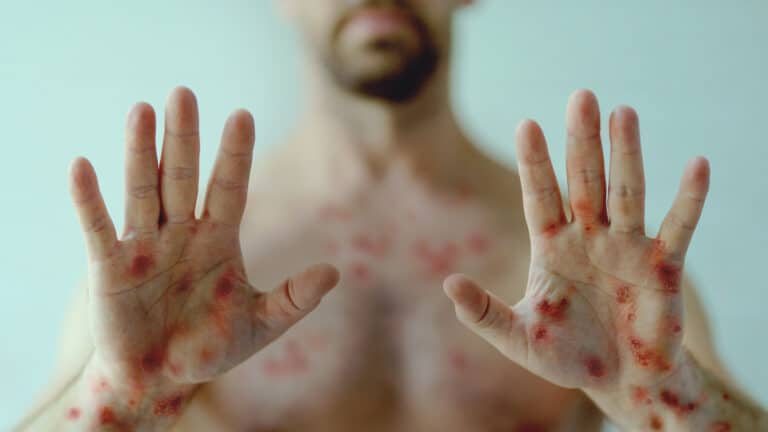Disruptive behavior disorder is a mental health condition where people act in ways that are disruptive to the lives of others.
These actions can be either intentional or unintentional and can cause distress to the person’s family members, friends, teachers, classmates, and peers.
Oftentimes, disruptive actions and behaviors are seen in children. While it’s normal for a child to not always listen to authority figures, it becomes a problem when they show ongoing patterns of uncooperative and defiant behavior.
Continue reading to explore what causes this disorder and how it’s treated.
What is Disruptive Behavior Disorder (DBD)?
DBD is characterized by any number of severe outbursts that can be physical violence, verbal abuse, and sometimes the destruction of property.
These outbursts from children or adolescents often occur with no warning and the person cannot control themselves during them.
DBD is a coping disorder, not an impulse control disorder like ADHD or OCD. The key to understanding this condition is understanding what triggers these outbursts.
A common symptom for those with DBD include:
- Frequently throwing temper tantrums
- Arguing excessively with adults
- Rejecting requests from adults
- Questioning authority and rules
- Breaking rules and refusing to comply
- Aggression toward people or being deliberately annoy
- A person’s behavior or mistakes are attributed to others
- A tendency to become easily irritated
This can be triggered by any number of events such as anxiety-provoking situations like crowds or loud noises to more personal triggers like feeling ignored or neglected.
Oppositional defiant disorder (ODD) and conduct disorder are the most common types of disruptive behavior disorder.
In children with ODD, an anger outburst, arguments or disobedience is a persistent pattern. In addition to targeting authority figures like parents and teachers, these behavior problems can also be directed at siblings, classmates, and other children.
What Causes DDB?
A person with disruptive behavior disorder may have a negative outlook on life, sometimes get bored easily, and/or have a short temper.
When this person starts to feel any of the above, they may withdraw from their environment or express themselves in a way that is not socially appropriate.
Causes of DBD are not well understood but it is believed that poor social skills and impulsive behaviors can lead to the development of DBD.
In some cases, a person with disruptive behavior disorder may have experienced an event that was devastating for them.
When the traumatic event passes and the symptoms of disruptive behavior disorder start to present themselves, it is hard for those around them to understand why a seemingly well-adjusted individual would begin engaging in these behaviors.
People with DBD can appear happy on the outside and may not understand why they anger so quickly.
Importance of Understanding the Individual
Understanding the condition is the first step in helping those with Disruptive Behavior Disorder. It is important to understand that the behavior is not intentional, but rather an uncontrollable reaction to something else.
It can be triggered by emotional distress, for example, which makes it even more difficult to deal with. This is why it’s so important to find out what’s causing the person to act in ways that are disruptive to themselves and others.
Get Proper Support
The next way you can help someone with DBD cope with their condition is by getting them the proper support they need. The support they need may come in many different forms, such as therapy sessions, medication or having somebody who can listen and offer a shoulder to cry on when needed.
Help Them Avoid Triggers
You can also help them avoid their triggers. For example, if somebody gets really angry after seeing red cars, make sure they don’t see any red cars around when they’re in bad moods.
Also, try to calm them down whenever you notice that something has set them off, by offering a hug or helping them find somebody to talk to.
Prepare For Certain Situations
The next thing you can do is prepare for what’s more likely to happen. Try not to be caught off guard if they show signs that something is wrong, even if it seems like nothing has happened before. This way you’ll be able to better help them and prevent further disruption of your own life and their lives as well.
Be a Good Role Model
The last thing you can do to help someone with Disruptive Behavior Disorder is to be a good role model for them. By being a positive example, they’ll be able to learn from you and avoid the triggers that make them act in such ways as well as find better ways of coping with their condition. This could lead to an overall better and less disruptive lifestyle for them.
How to Help a Loved One with DBD
It’s important to note the difference between deliberate and unintentional aggressive behavior.
If you are experiencing or witnessing someone with DBD willingly or purposefully hurting others, it is crucial that you remove them from the situation.
This could be anything from calling an adult after noticing on social media that they are threatening suicide, to diffusing a violent situation by distracting everybody with some music.
If someone with DBD is acting out on accident, however, it is best to first try reasoning with them before removing them from the situation.
You can do this first by trying to understand their perspective around the event, then empathizing with them – for example, “I know you want _____ right now but it’s not ok for us to take that without asking and I can see why that’s upsetting for you.”
The key takeaway here is to validate feelings and perspectives before we jump into problem-solving.
Treatment Options for DBD
People and children with disruptive behavior should meet with a mental health professional and discuss treatment options with their primary care physician.
The main goal in psychotherapy is to bring about adaptive changes in the person’s cognitions, emotions, and behaviors. At SoCal Sunrise Mental Health, we individualize all of our treatments to give our clients the best opportunity to a happy and healthier life.
Behavioral therapy and plays an important role in the treatment of DBDs that focuses on modifying negative or disruptive behavior patterns by rewarding positive actions instead. It will teach the individuals positive and useful behavior management techniques.
The use of medication is another important component that can be used to treat DBDs depending on the severity and type of the disorder given. The most common types of drugs given include antidepressants or mood stabilizers.
Get Help With SoCal Sunrise Today
It’s incredibly important to understand that Disruptive Behavior Disorder is a condition that cannot be controlled by the person themselves and they’re not doing it to be rude or obnoxious.
It’s an uncontrollable reaction to something else such as emotional distress, certain sensations, or even sounds.
The main takeaway from this is to remember that your role as a bystander is not to “fix” the situation, but rather keep everyone safe and supportive of each other. Sometimes that will mean removing them from the situation, and sometimes it means just listening without judgment.
If you or your loved one is struggling with DBD or other mental health disorders, contact us today and schedule an appointment.






